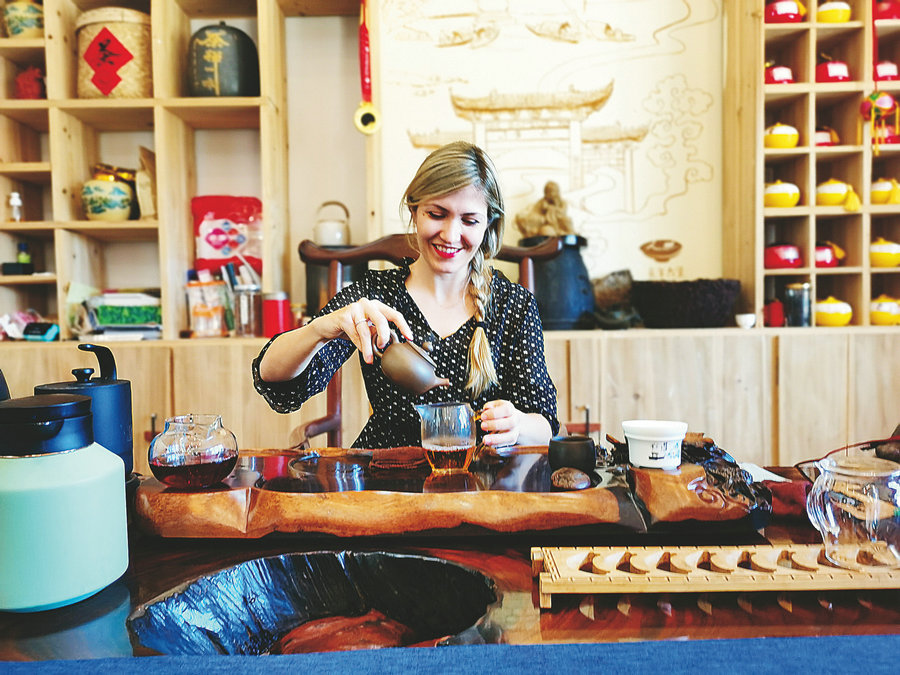Tea tourism revives village


Khani Fariba and Ishtiaq Ahmed, a couple from Iran, were surprised by the romance associated with the tea during their visit to the museum.
In the first part of the 20th century, residents would gift Liubao tea and salt to a bride to symbolize long-lasting affection, as tea originates from the mountain and salt comes from the ocean.
In nearby Tangping village, an inheritor of intangible cultural heritage, Wei Jiequn, 63, and her daughter Shi Rufei, 34, have been sticking to traditional techniques, including drying, baking and fermenting the leaves.
They are running a workshop in the village in which tourists can learn about Liubao tea culture by experiencing the traditional production process.
Shi has been a leader in helping local villagers increase their income through making tea. Shi has insisted on innovating traditional tea-making techniques and shares her experiences with local rural households.
From 2017 to 2020, the Liubao tea plantation area in Cangwu county increased from 71,000 mu (4,733 hectares) to 92,500 mu, according to the local government. Annual tea production went from 2,600 tons to 4,180 tons in that three-year period, with output value more than doubling from 310 million to 670 million yuan.
In 2025, the output value of Liubao tea from Wuzhou will reach more than 50 billion yuan, says Zhong Changzi, mayor of Wuzhou.
"On this basis, we will keep moving forward to create a 100 billion yuan industry," Zhong says.
























